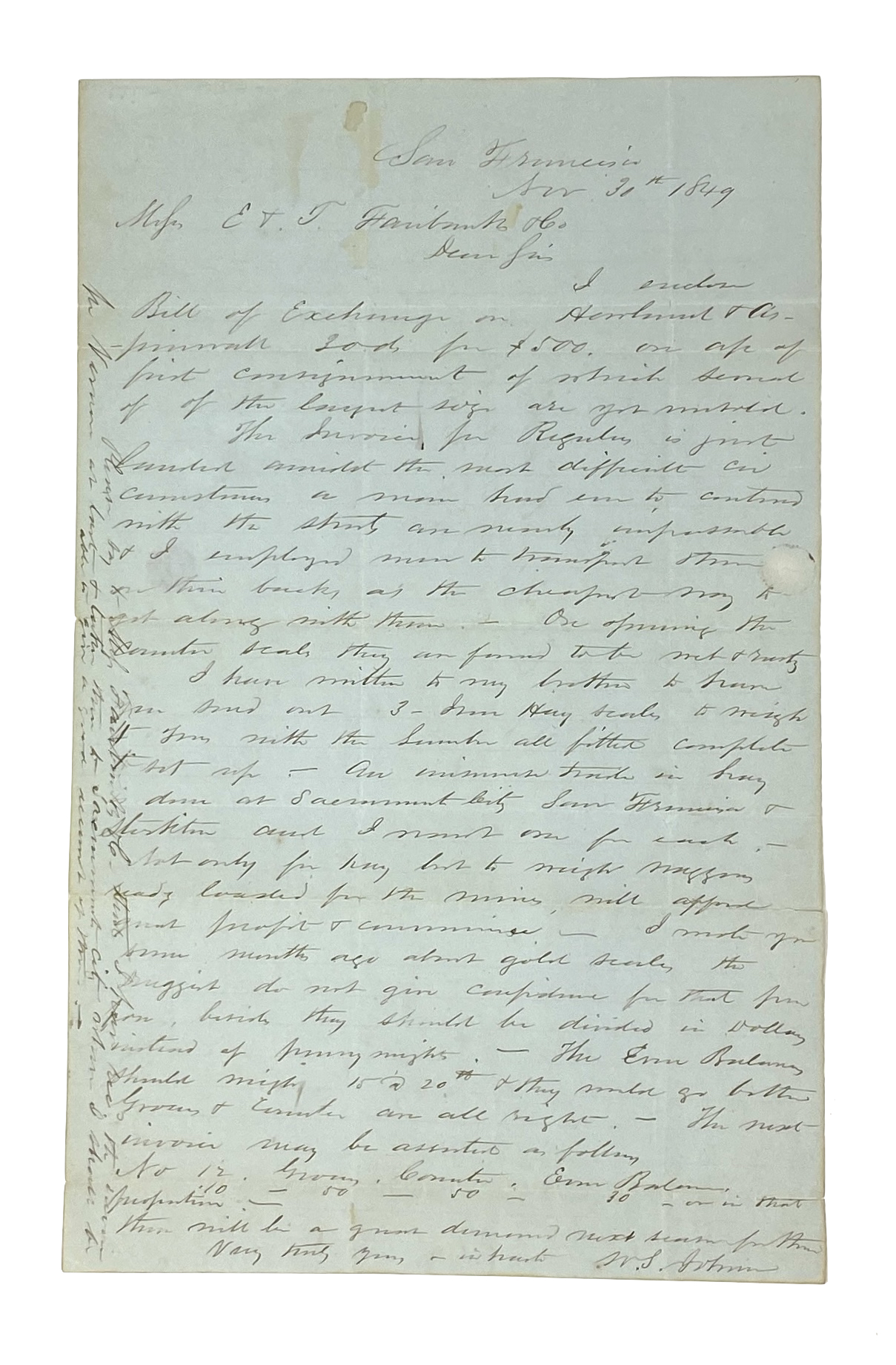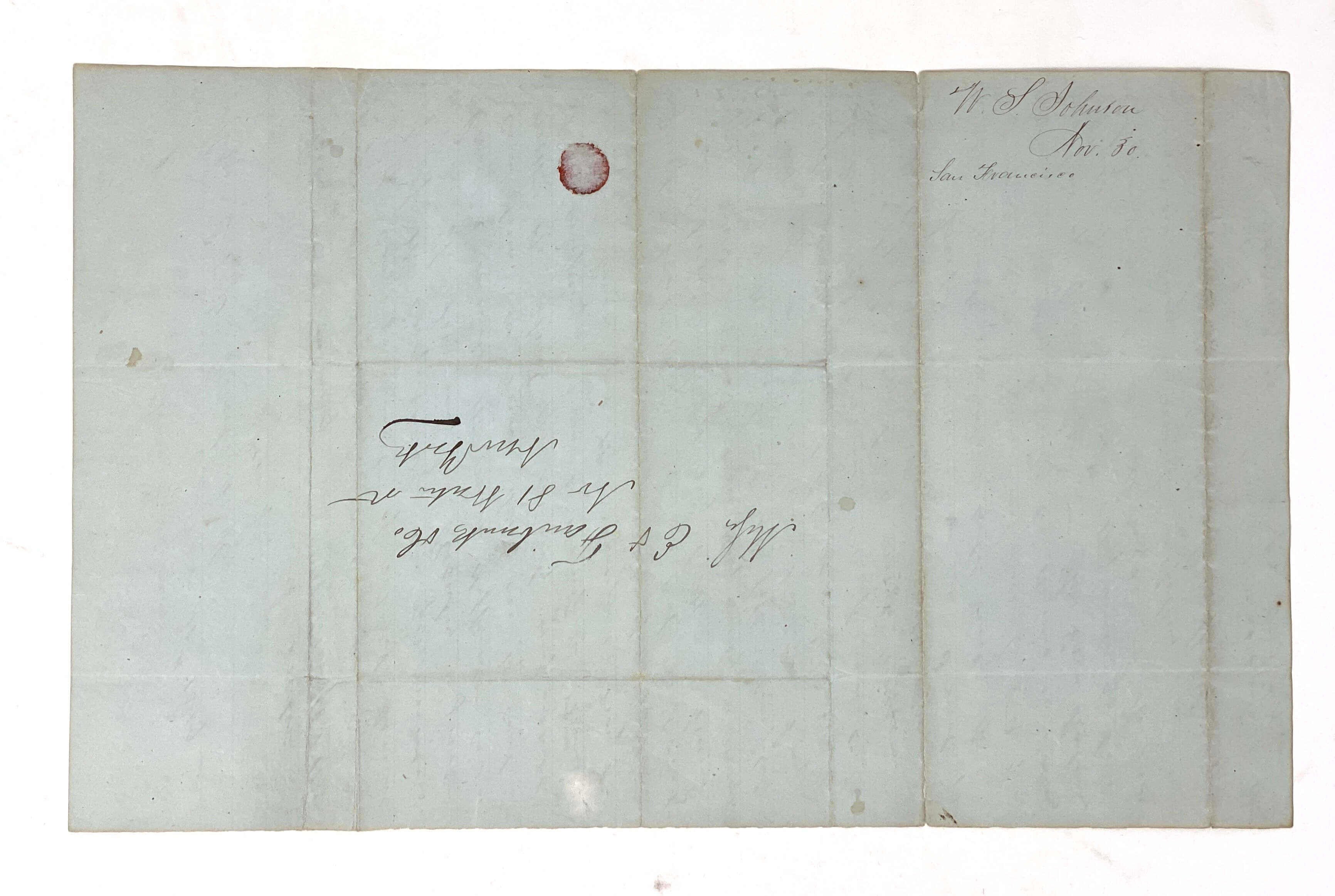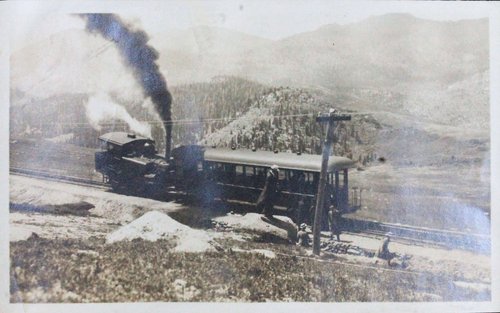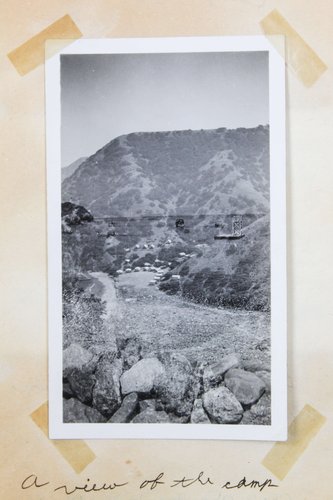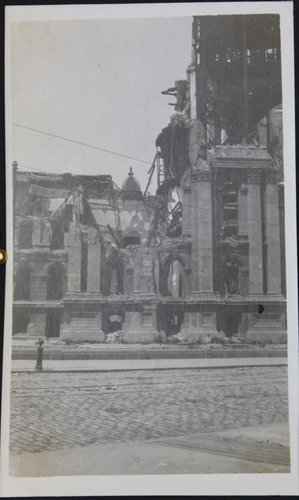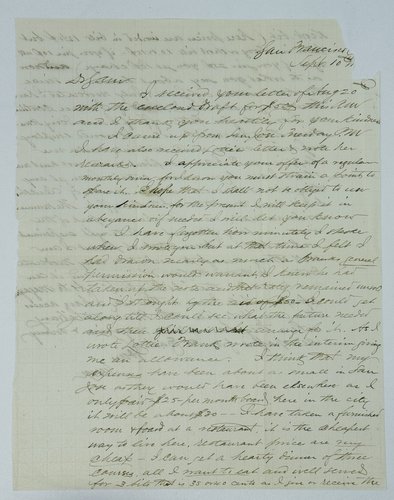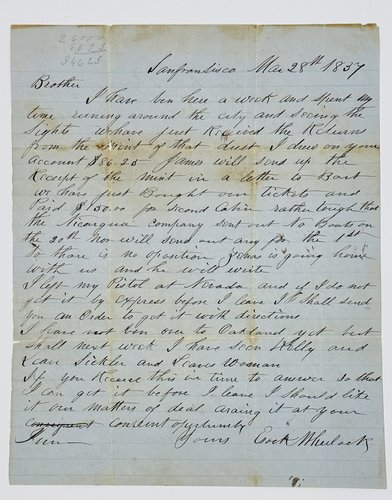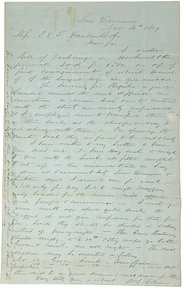
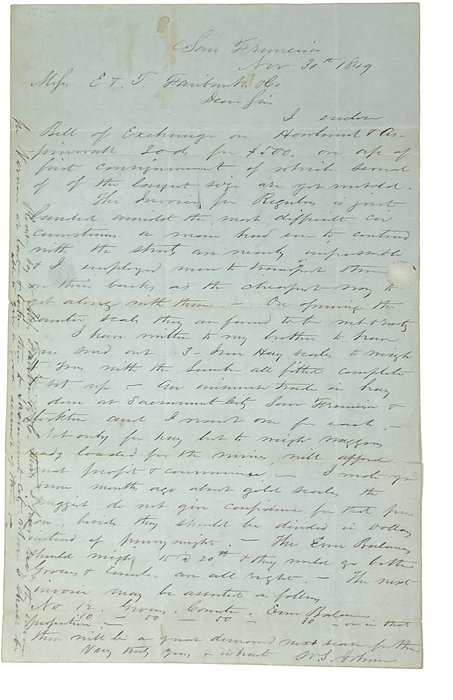
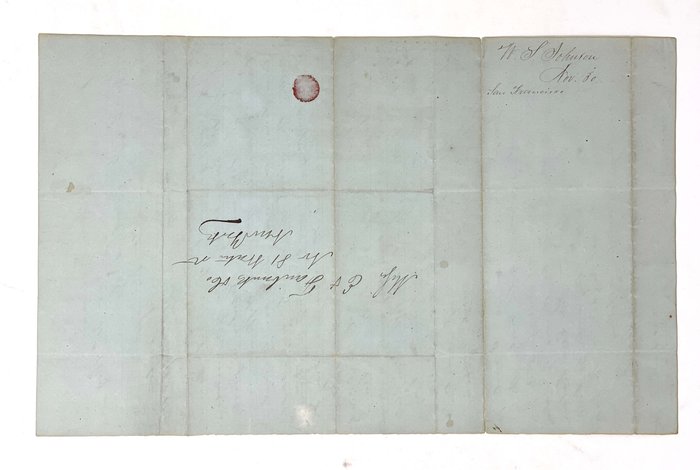
#MA64
November 1849
Folio (ca. 32,5 x 20,5 cm) 2 pp. Black ink on bluish wove paper. Fold marks and minor tears on fold, otherwise a very good letter written in a legible hand. A historically interesting original autograph manuscript letter documenting a sales deal between a pioneer California merchant and one of the nation’s oldest scales manufacturing enterprises, Fairbanks & Co. The author, W. S. Johnson, wrote the letter on 30 November 1849, as San Francisco’s early agricultural boom, the influx of settlers, and the discovery of gold set forth the urgent need for proper weighing equipment.
The history of E. T. Fairbanks & Co starts in 1831 when the Fairbanks brothers from St. Johnsbury, Vermont, received the first patent on their “platform scales.” During the gold rush years, Fairbanks & Co became America's most trusted enterprise to manufacture accurate and durable scales for various purposes (railroad scales, hay scales, druggist’s scales, etc.). By the mid-1860s, Fairbanks turned out 4,000 scales a month, opening branches nationwide and trading with numerous countries, including China, Cuba, Russia, India, etc. The enterprise remained America’s leading scale manufacturer until 1917, when Fairbanks & Co was acquired by the Boston-based United Hammer Co.
Addressed to the E. T. Fairbanks & Co’s New York branch, this interesting, early California letter displays the author’s knowledge of the American scales industry. In the text, Johnson complains about receiving wet & rusty counter scales from a previous invoice, laments the “nearly impassable” streets of San Francisco, and reveals the cheapest way to transport the equipment through the overcrowded city (on the backs of employees). Next, the author discusses the hay trade boom in San Francisco, Stockton, and Sacramento and orders three iron scales to measure hay and wagons loaded for the mines. In light of the unfolding California Gold Rush, Johnson attempts to find the most suitable option for weighing gold and, for this cause, offers precise modifications to various types of scales manufactured by the company. Near the letter’s close, the author orders 100 weighing scales and predicts their massive popularity next season.
In the text, Johnson also mentions Howland & Aspinwall, a New York-based early merchant firm specializing in the Pacific Ocean trade and importing high-status goods (iron, porcelain, silk, etc.) from China. The author writes about the bill of exchange for $500 worth of goods, apparently purchased by Fairbanks & Co earlier.
Overall, a historically interesting early original autograph manuscript letter documenting the effect of the California Gold Rush on the development of the American scales industry.
The text of the letter (original spelling and punctuation preserved):
“I enclose Bill of Exchange on Howland & Aspinwall good, for $500 on a/c of first consignment of which several of the large sizes are yet unsold.
The invoice for Regular is just landed amongst the most difficult circumstances a man had ever to contend with The streets are nearly impassable & I employed men to transport them on their backs as the cheapest way to get along with them. On opening the counter scales they are found to be wet & rusty.
I have written to my brother to have you send out 3 Iron Hay scales to weigh 4 Tons with the Lumber all fitted complete to set up. An immense trade in hay is done in Sacramento city San Francisco & Stockton and I want one for each. Not only for hay but to weigh waggons ready loaded for the mines, will afford great profit & commission I wrote you some months ago about gold scales the Druggists do not give confidence for that purpose, besides they should be divided in Dollars instead of penny weights. The Even Balances should weigh 15 @ 20 & they would go better Grocers & Counter are all right. The next invoice may be assorted as follows No 12. Grocers.
Counter. Even balances 10 50 50 30 - or two in that proportion. There will be a great demand next season for them.
Please say to Messrs Fairbanks & Co. that I have rec. the invoices per last & taken them to Sacramento City where I should be able to give a good account of them.”

